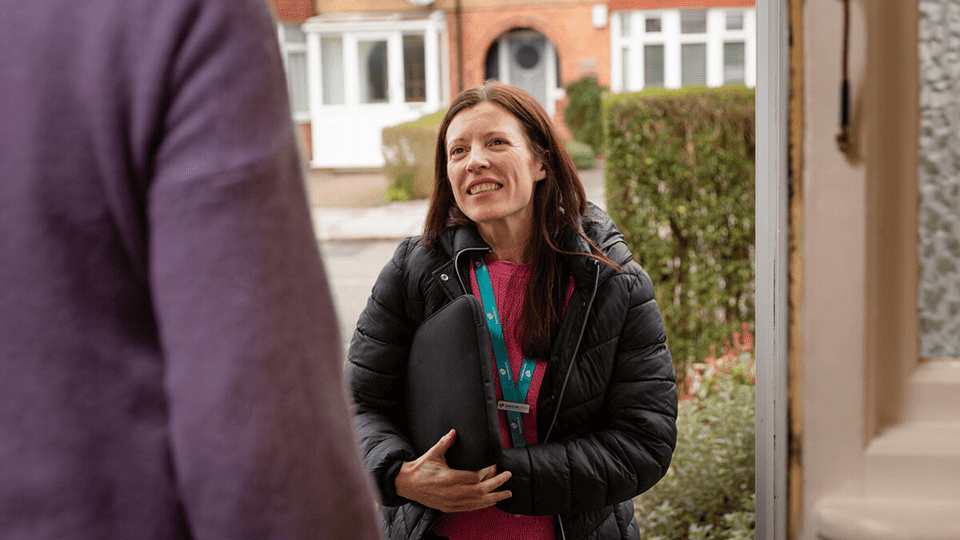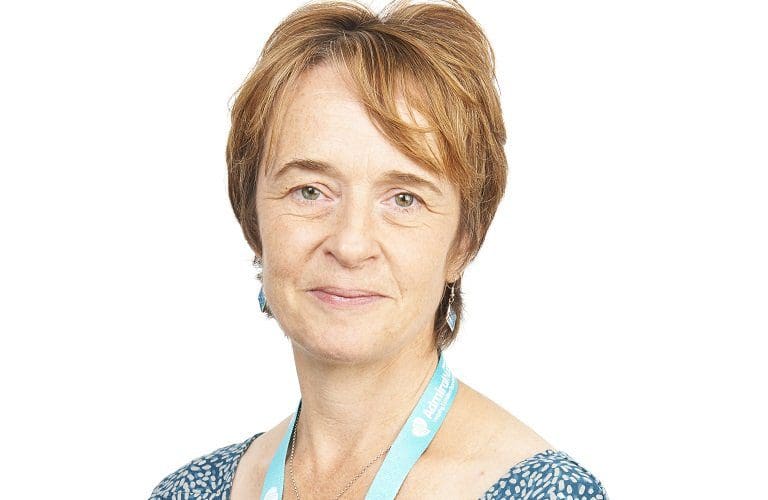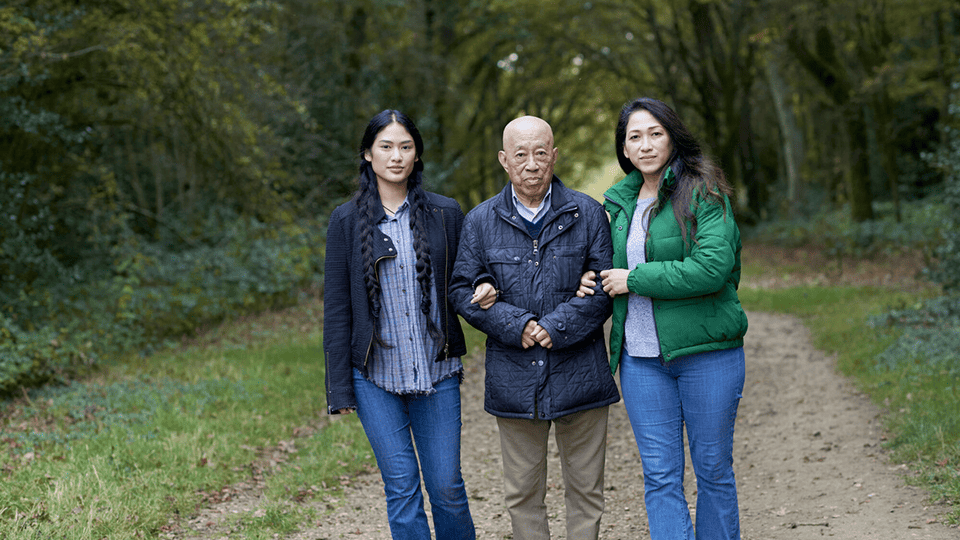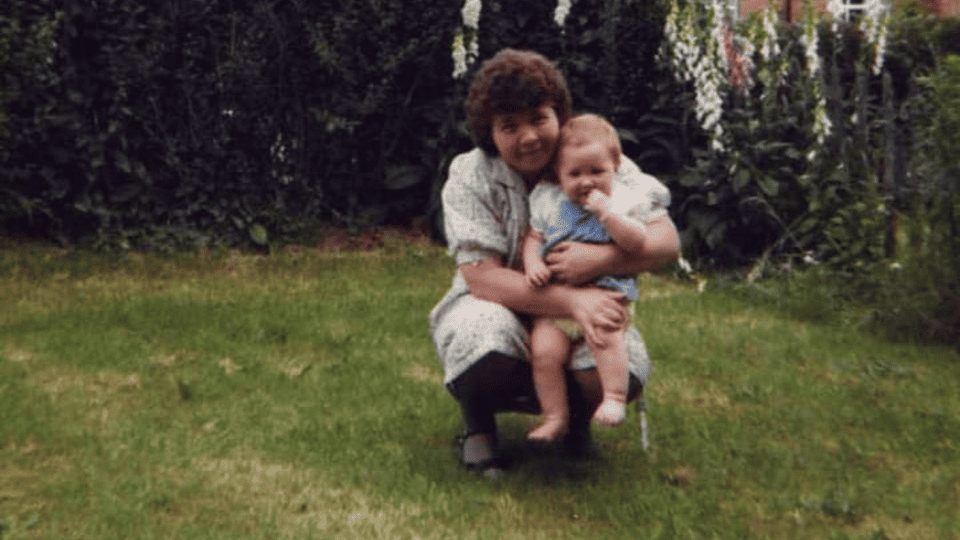
Getting to know you: Hannah Gardner
Hannah Gardner has recently been appointed as Consultant Admiral Nurse for Children and Young People.
Rachel Thompson, Consultant Admiral Nurse for Lewy body dementia, shares how she supports colleagues and families affected by this type of dementia.
My current role originally started as a two-year funding project between Dementia UK and the Lewy Body Society as both organisations recognise Lewy body dementia as one of the main subtypes of dementia and commit to improving support for families affected. In fact, it is thought to account for 10-15% of all those with dementia, with around 10% of people with young onset dementia (ie under the age of 65) having this subtype.
Between June 2020 and June 2021, I supported 71 family carers and people living with Lewy body dementia and the feedback from the service was extremely positive. I was thrilled when this led to the funding for the role being extended by the Lewy Body Society for another two years. Dementia UK has also provided funding for an additional Admiral Nurse specialising in Lewy body dementia to increase the support available.
Over the last few years, the main reasons for people being referred to the service included: significant difficulties with managing challenging symptoms, significant distress in relation to caring or adjusting to the diagnosis, changes in relationship, and difficulty with managing medication – including instances where people have had adverse reactions to psychotic medication for hallucinations as well as Parkinson’s medication contributing to hallucinations.

Symptoms of Lewy body dementia can be significantly different to the more widely understood symptom of memory loss in dementia. People can develop hallucinations or what is known as ‘Capgras or imposter syndrome’ which is a delusion of misidentification. REM (Rapid eye movement) sleep disorder can be another occurrence, which can cause vivid nightmares and violent movements during the night. As Lewy body dementia is closely linked to Parkinson’s, symptoms from this condition can manifest as well; this includes movement problems with balance, tremors and rigidity. Sudden fluctuations or changes in people’s awareness and abilities can also be confusing and very difficult to manage.
This specialist role is so important to improving routes to diagnosis for families, allowing them to be supported throughout the stages of the condition as well as helping link them up to other services.
Families need improved diagnosis rates for Lewy body dementia as some cases of Lewy body dementia can be mistakenly diagnosed for Alzheimer’s disease or misdiagnosed as a psychotic or neurological condition. Treatment and management of Lewy body dementia needs to be managed very carefully and as such specific diagnosis is of particular importance, including at later stages.
An accurate diagnosis can result from as full an overview as possible of a person’s symptoms and an understanding of those symptoms by professionals.
Throughout my role so far, one of the main areas of support I’ve provided to families is developing coping strategies and skills to promote psychological wellbeing. This includes support with developing strategies for managing anxiety, stress and low mood, which are common amongst family carers and people with Lewy body dementia. I also provide tailored advice on how to recognise symptoms and adjust responses to reduce conflict and promote well-being.
Working with couples also plays a part in my role. Due to the challenges which may present after a diagnosis of dementia, it’s important that lines of communication between the couple are open – this would include a focus on problem solving and future planning for any progression of the dementia.
Fostering a culture of understanding amongst professionals is also so important. It is integral for families to get a diagnosis and access support, so this is something I support professionals with in my current role. Over the year, I’ve provided support to 1,331 professionals, including Admiral Nurses, Memory services, geriatricians, palliative care nurses, and Parkinson’s specialists, around the complexities of Lewy body dementia.
Having worked in dementia care for a number of years, I became aware of the challenges faced by families affected by Lewy body dementia and so this post was an an ideal opportunity for me to build a more positive and supportive future for those families. This post has enabled me to enhance my knowledge in this complex field of dementia and develop new links with other specialist fields such as Neurology. I can now provide a more targeted, in-depth level of support for families and I am able to learn from and share new research as it emerges.
Over the next few years, I’ll be developing new resources to increase understanding, including new leaflets for families. I also plan to develop training resources for a range of professionals to improve recognition, understanding, care and support of this subtype of dementia.
The Lewy Body Society has a range of dementia leaflets including one on managing hallucinations and one on and delusions and Capgras.

Hannah Gardner has recently been appointed as Consultant Admiral Nurse for Children and Young People.

Admiral Nurse Lizzie Harrison provides support strategies for young people caring for someone with dementia.

This International Women’s Day, we asked three of our dementia specialist Admiral Nurses about women who have inspired them.